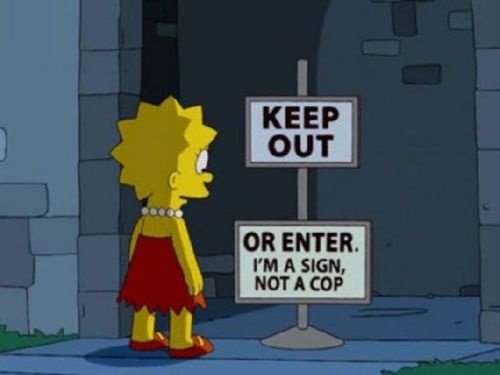Respect. What is it and Who's earned it?
It’s a source of contention we’ve all faced at some point and likely will until we die.
Who deserves our respect? How do we define it? Who's earned it? And, by what right have they earned it?
When we think of respect we can look at it from different vantage points.
- Quid pro quo, or, “I respect you, so you should respect me”.
- Respect of authority, this is meant for teachers, bosses, and police. People in position’s you’re expected to listen to.
- Finally, respect from admiration, these are people we cherish, love, or admire. Whose actions we deem worthy and wish to emulate.

Respect via guilt (quid pro quo):
The logic behind this goes as such, someone claims to respect you in a situation where the actions prove otherwise and the words are phrased in an attempt to guilt you into “respecting” them. At no point is a solution really offered, nor a definition of your suddenly newfound respect. To me, this is the worst kind of respect. It honestly borders on disrespect as soon as those words are uttered. Maybe you’ve had a disagreement with a coworker and they try to claim the high road by stating their respect regardless of their actions. Or, maybe, you feel wronged by a person in authority and they try to cover up their mistakes by offering an olive branch of ‘respect’. Either way, this form really isn’t earned. It’s stated like a fact without any evidence.
Respect of Authority:
This should be pretty obvious for most of our users on here. And while it can be broken down into several groups, I’d rather focus on it from a societal point of view. Respect of authority comes from usually vague social notions that can or are enforced by rule or law. When you enter a classroom for the first time you’re expected to sit quietly and await instruction. Failure to do so may be met with chiding or the wrath of a teacher for the entirety of the school year (it really depends on the teacher). Law enforcement provides another example, we see a badge, and have ingrained in us through media and our upbringing that this is someone to be listened to, trusted, and observed. In light of recent events in media this respect is being eroded, as it should be for those groups who feel affected.
As Steve Atyr puts it,
”Persons who abuse their authority can, and should, have the Respect of Authority removed, along with taking steps to have them removed from the authoritative role.”
And while you’re free to disagree with the message spread by certain groups, that doesn’t remove the power given to them by society. And, because of this, it’s crucial we hold those with respect of authority to extremely high standards, especially if we’d like to see their methods change.
Respect from admiration:
This is one that I’d hope would be apparent to everyone, but is more often than not misunderstood. This type of respect is based solely in our own opinions, it is granted by you and only falsely expected by others. Respect of admiration involves a significant amount of trust and honesty. When we deem someone worthy of this level of respect we hold them to lofty standards and feel hurt when they can’t match them. As such, it is worth our while to reflect on why we’ve deem this person’s qualities to be worth our admiration. And, have the wherewithal to realize that if our standards change, or the person does, that we have the right to revoke our respect for the person. This is itself a form of respect, for one’s self.

The majority of us will interact with some level of respect daily, it just can’t be avoided. It’s important to understand what applies to who and where your power in the situation lies.
I upvote U